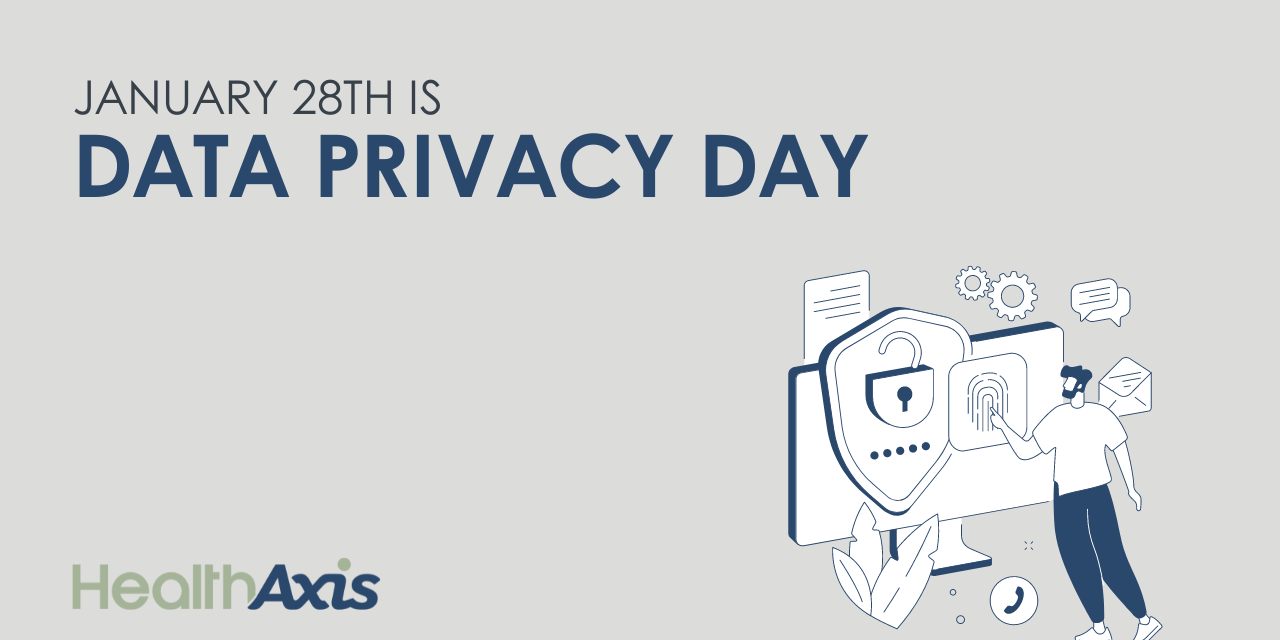January 28th marks an important date for all sectors dealing with sensitive data, especially in the healthcare industry. It’s Data Privacy Day, an annual observation dedicated to raising awareness and promoting privacy and data protection best practices. As HealthAxis, a leader in healthcare technology and services, we see this day as a pivotal moment to reflect on the challenges and breakthroughs in claims processing and look ahead to what the future may hold.
In this blog post, we delve into the history and significance of Data Privacy Day, analyze the dynamic changes in claims processing within healthcare, and discuss the innovative impacts of technology, particularly AI, in this evolving landscape.
Understanding the Purpose of Data Privacy Day
Data Privacy Day was first held in Europe as the European Data Protection Day in 2007 and was initiated by the Council of Europe. In the United States, the House of Representatives passed a resolution in 2009, declaring January 28th as National Data Privacy Day. Since then, it has been a global effort aimed at educating individuals and organizations about the importance of respecting privacy, safeguarding data, and enabling trust. Various organizations, including government agencies like the Federal Trade Commission (FTC), participate in this event, providing resources and tips to help protect privacy and limit the sharing of personal information.
In the context of healthcare, this translates to the protection of patient information, a responsibility that healthcare payers take seriously. The Health Insurance Portability and Accountability Act (HIPAA) in the United States is a testament to the importance of data privacy, ensuring that patient information is kept confidential and secure.
The Evolving Landscape in Claims Processing
The healthcare industry is witnessing an unprecedented transformation in claims processing, driven by digital innovation. With the introduction of electronic health records (EHRs) and automated processing systems, the efficiency and accuracy of claims processing have seen significant improvements. However, these advancements also bring challenges, especially concerning data privacy and security.
According to the 2023 IBM Cost of a Data Breach Report1, the healthcare sector remains one of the most targeted by cyber-attacks, with the cost of a data breach being significantly higher than in other industries. This underscores the need for robust data protection strategies in claims processing.
AI Breakthroughs and Challenges
Artificial Intelligence (AI) is significantly transforming the landscape of claims processing in healthcare. By leveraging its ability to analyze large datasets rapidly, AI enhances the efficiency and accuracy of processing claims. This technology enables the identification of complex patterns and predictive analysis, which streamlines the decision-making process and reduces human error.
However, the integration of AI in healthcare comes with its challenges, particularly concerning data privacy and security. As AI systems handle extensive and sensitive patient data, there is an increased risk of data breaches and misuse of information. To address these concerns, strict governance surrounding the ethical use and privacy of AI in healthcare is essential. A report by McKinsey & Company2 emphasized the need for rigorous ethical and privacy guidelines in AI applications to protect patient data from being compromised. This involves ensuring AI systems are transparent, fair, and accountable while maintaining data integrity and confidentiality.
Healthcare organizations must be proactive in implementing robust security measures and ethical frameworks to safeguard patient data. This includes regular audits, employee training, and employing advanced security technologies. Furthermore, as AI continues to evolve, staying updated with regulatory changes and best practices in AI ethics and data protection is paramount.
AI’s potential in healthcare claims processing is immense, but it must be balanced with a commitment to maintaining the highest standards of data privacy and ethical considerations. The future of healthcare AI is not only about technological advancement but also about fostering trust and reliability in its use.
Predictions for the Year Ahead
In the year ahead, it’s anticipated that the role of AI in healthcare claims processing will become more integral, with a growing number of healthcare payers turning to this technology to enhance their operations. This trend is expected to drive a heightened demand for professionals skilled in navigating both AI applications and the intricacies of data privacy within the healthcare sector.
Additionally, it’s foreseen that there will be an increase in regulatory measures focused on reinforcing data privacy in healthcare. These anticipated regulations will likely necessitate a more vigilant and proactive stance from healthcare payers in terms of protecting data. This evolving landscape underscores the importance of continuous adaptation and vigilance in managing data privacy and security in an increasingly AI-driven healthcare environment.
Embracing the Future with HealthAxis
As Data Privacy Day prompts us to reflect, at HealthAxis, our dedication goes beyond mere observance. We are fully committed to empowering healthcare payers with the essential knowledge and cutting-edge resources needed to adeptly navigate the evolving landscape of data privacy and AI in claims processing.
Our specialized consulting services are designed not just for compliance with data privacy regulations, but to enable healthcare payers to effectively harness the advancements in technology. This commitment ensures that your claims processing systems are not only in line with current regulations but are also innovative and efficient.
Data Privacy Day is more than a reminder of our shared duty to protect sensitive data; it’s an impetus for healthcare payers to critically evaluate and upgrade their data privacy strategies. It’s an opportunity to responsibly embrace new technologies, ensuring that the future of healthcare is secure, compliant, and forward-thinking.
HealthAxis stands ready to guide you through this transformative journey. Learn more on how HealthAxis can assist in simplifying the complexities of claims processing and data privacy.
Sources:
- 2023 IBM Cost of a Data Breach Report, IBM
- From Principles to Practice: Putting AI Ethics into Action, McKinsey & Company






